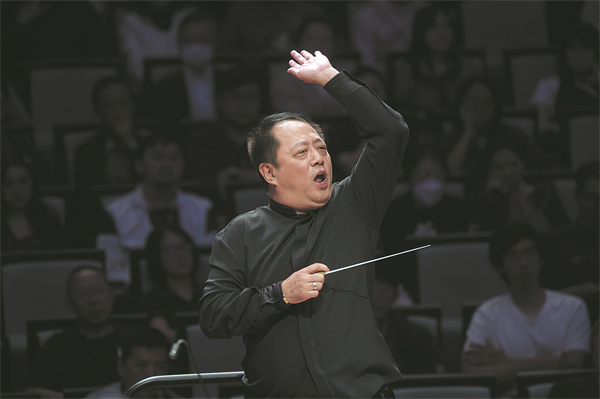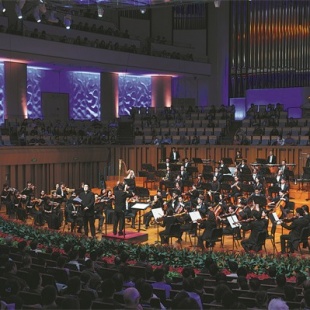Composer orchestrates bruckner's appeal
Under the baton of Lyu Jia, Austrian's music becomes a pioneering mission of human emotion and spiritual grandeur, Chen Nan reports.


The orchestra's journey with Bruckner began in 2016 when the musicians first performed his symphonies in concerts. At the time, Bruckner was considered a "ticket killer" in China, with audiences less familiar and less enthusiastic about his expansive symphonic works, Lyu recalls.
However, under Lyu's leadership, this perception has shifted considerably. Today, Bruckner's symphonies have become a central part of the orchestra's repertoire, and their performances have attracted growing audiences. In fact, the average attendance rate for the composer's symphonic concerts has increased from 70 percent in 2016 to 85 percent last year, a clear sign of the growing maturity in China's classical music audiences, according to the national center.
Recording all nine symphonies represents a grand artistic endeavor, as each symphony has distinctive qualities and challenges, ranging from the monumental Symphony No 8 to the more intimate and introspective Symphony No 7. The complete cycle offers listeners an opportunity to appreciate the evolution of the composer's symphonic style over several decades. From the youthful and energetic Symphony No 1 to the more mature and philosophical Symphony No 9, the cycle reflects a musical journey that spans emotional depth, harmonic innovation and orchestral mastery.
"Our job is not to simply re-create the notes on the page but to bring the emotional weight and philosophical depth of the music to life," says Lyu, who led the orchestra to stage 25 concerts since 2021 with the title The Bruckner Ciphers, featuring all of the composer's symphonies.
Tempo and pacing can be tricky in Bruckner's music, where the gradual building of tension and emotion is key, the conductor notes. If the tempo is too fast, the emotional impact may be lost; too slow, and the music risks becoming stagnant or overly ponderous. Achieving the right tempo for each movement and between movements is critical.
These symphonies are long — some can last over an hour and a half. Maintaining the emotional intensity and physical stamina required for such long works in the recording studio can be exhausting. A full cycle of the composer's symphonies requires not just technical precision but also emotional endurance over many days or weeks of recording sessions.
"The NCPA orchestra delivers a thoroughly satisfying account of a Bruckner symphony; this set is proving to be one of the high points of the bicentenary," wrote music critic Ralph Moore on the website MusicWeb International.





































